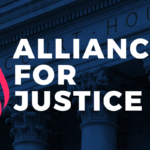Opinion Article: U.S. Supreme Court Case Could Expose Every Federal Bank Regulator to Political Inference
An upcoming U.S. Supreme Court case has the potential to upend the way federal banking regulators operate, according to Senator Elizabeth Warren. As the case looms, the potential risks are becoming increasingly clear. If the court rules in favor of the plaintiff, it could open the door to political inference in the banking sector, while also putting Social Security and Medicare at risk.
Background of the U.S. Supreme Court Case
The U.S. Supreme Court case, PHH Corporation v. Consumer Financial Protection Bureau, is scheduled to be heard on November 8, 2016. The case centers around the constitutionality of the Consumer Financial Protection Bureau (CFPB). The CFPB was created in 2010 by the Dodd-Frank Wall Street Reform and Consumer Protection Act. The CFPB is an independent regulatory agency tasked with protecting consumers from unfair, deceptive, or abusive practices in the financial sector. The CFPB is headed by a director who is appointed by the President and confirmed by the Senate.
Potential Impact on Federal Banking Regulations
The case has the potential to significantly reshape federal banking regulations. If the court rules in favor of the plaintiff, then the CFPB would be subject to the same oversight and control as other executive agencies, such as the Securities and Exchange Commission or the Federal Trade Commission. This could open the door to political inference in the banking sector, as the President would have the power to appoint and remove the director of the CFPB. This could also lead to a decrease in the effectiveness of the CFPB, as it could be used by the President to advance his own political agenda.
Potential Impact on Social Security and Medicare
The U.S. Supreme Court case also has the potential to jeopardize Social Security and Medicare. The CFPB is tasked with enforcing consumer protection laws in the banking sector, which includes monitoring financial institutions for compliance with laws such as the Truth in Lending Act. This law is responsible for protecting consumers from predatory lending practices, such as high-interest loans and hidden fees. If the court rules in favor of the plaintiff, it could lead to a decrease in enforcement of consumer protection laws, making it easier for financial institutions to engage in predatory lending practices. This could have a negative impact on the ability of consumers to save for retirement, as high-interest loans and hidden fees can quickly eat away at savings.
The Stakes are High
Senator Elizabeth Warren has been vocal in her opposition to the case, as she believes that the potential risks are too great. The outcome of the case could have a significant impact on the banking sector and could put Social Security and Medicare at risk. It is clear that the stakes are high and that the outcome of the case will have far-reaching implications.
Conclusion
The U.S. Supreme Court case, PHH Corporation v. Consumer Financial Protection Bureau, has the potential to significantly reshape the landscape of federal banking regulations. If the court rules in favor of the plaintiff, it could open the door to political interference in the banking sector, while also jeopardizing Social Security and Medicare. The stakes are high, and the outcome of the case will have far-reaching implications.


